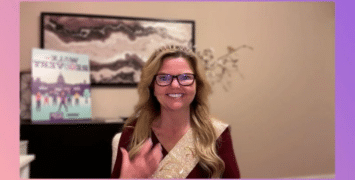Your cart is currently empty!

Monday Thoughts 7.25.22

“A lot of the pain that we are dealing with are really only thoughts.”
Anonymous
“You are not a helpless victim of your own thoughts, but rather a master of your mind.”
Louise Hay
“One small positive thought in the morning can change your whole day.”
Anonymous
In our WFS Program booklet at the beginning of Statement #5, four valuable questions lead the chapter. The first question asks, “Do you know your own mind?” Before sobriety and recovery, ignoring thoughts was a standard way of life. Yet today, I understand that my drinking was an attempt to escape the conversations and thoughts jamming up my mind.
In the past, I believed what my mind was saying without reservation and in early sobriety, the top priority with thoughts was much like that of a firefighter. I was going head-to-head against suffocating and heated thoughts that led back to drinking. Triggers appeared to surround me, but I was learning how to challenge what my mind was telling me. What helped more than anything during that time was the knowledge that I could object to intrusive thoughts and replace them with constructive thinking. This was a new concept, and it felt empowering to reclaim my thoughts and wake up sober each day.
Moving into long-term recovery, I shifted into managing thoughts as a daily task. By beginning each day by reading the Statements, I set the tone and focus for the day. It is helpful to remember that no two days are alike; some days may be easier while other days may be more difficult to manage thoughts. When it feels difficult, I revert back to the Statements and choose one as a mantra. Usually, my go-to is “I am a competent woman.” This reinforces and guides my thinking into a more manageable and comfortable space. Additionally, connecting with other 4C women is incredibly helpful, either through the WFS Online forum, face-to-face meetings, or Zoom. Mind your mind every day!
Hugzzz
Karen
Hi 4C Women,
I love that Karen said there are no two days alike. It took me a while to recognize that and rather than beat myself up for not living the Statement as I thought I “should,” I accepted that this was where I was at on any particular day and tried my best. I didn’t give up and say, “oh what’s the use?” but chose to be kind and nurture who I was at that moment. It was no longer about being impossibly perfect but mostly not giving up. What did change with that approach and attitude is that I no longer felt less than, incompetent, unworthy, and all those negative words I used to describe myself.
Along the way, WFS sisters have added to the 4C description, and here are some of theirs and mine:
Courageous in walking into a f2f meeting or attending that first Zoom meeting, to overcome the great fear of not knowing what to expect
Confident in the willingness to change
Committed to change even when those doubts come in
Can do – the thought that replaces doubt and encourages positive, incredible possibilities
Choice maker – I have the ability and coping skills to make healthy choices for my well-being
Credible, becoming credible to yourself and instilling that credibility to others as you keep moving forward on your recovery journey
Changing – what I value about WFS as it guides me to change the most important part of recovery – the inside self.
Communicator– learning to share with a clear mind, getting to know and express your needs, and understanding that you deserve to have those needs met by you as well as in important relationships.
Compromiser – another aspect of communicator that teaches us that compromise is an important part of meeting our needs and others by active listening, and remembering we all have needs. It’s how we communicate and react in a respectful, hopefully, calm manner, that builds healthier relationships.
Creative – While I or you may not be creative in the artistic sense, we have created a New Life!
And all these words add up to my favorite – can do! Whenever I feel overwhelmed or unsure, I tell myself I can do it, or at least I am willing to try. If it’s beyond my capabilities, at least I tried. Best of all, my inability does not delete or take away from all that I have and am working on accomplishing. Its lessons learned, limitations noted and accepted, and on to the next. Mostly, I have found that the image I create in my mind being a 4C woman is the way I begin to show up in this world. That’s powerful and empowering.
What positive words would you add?
Throughout the day, think about how you talk to yourself? Would you talk to a friend in the same manner who was seeking encouragement and support? Remember this if you start to berate yourself and think how does this fit into becoming or maintaining your 4C self? Just as WFS is a program of acceptance, always remember that this acceptance includes YOU accepting yourself this moment, this day as you learn, grow emotionally, and build up that toolbox of coping skills. The thoughts and the words you speak to yourself can be transforming, uplifting, and absolutely necessary.
Bonded in becoming and accepting ourselves as we journey on, Dee




